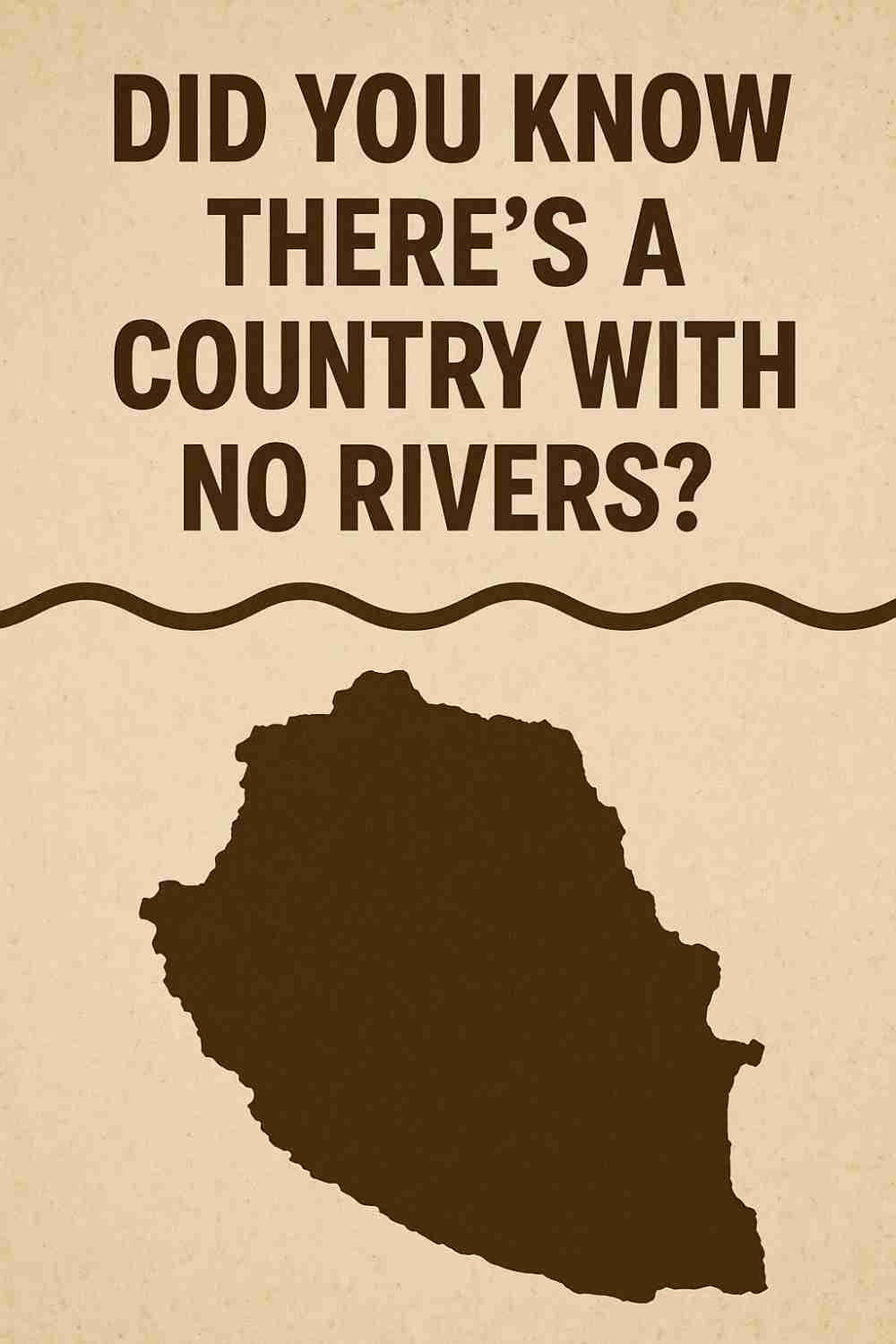 Imagine standing in a place where not a single river flows—no babbling brooks, no rushing rapids, just dry land stretching as far as the eye can see. It sounds like something out of a desert mirage, but it’s real. There’s actually a country on this planet that doesn’t have a single natural river. None. Zero. Zip. And no, it’s not some barren wasteland—it’s a place with bustling cities, rich history, and even lush greenery in parts.
Imagine standing in a place where not a single river flows—no babbling brooks, no rushing rapids, just dry land stretching as far as the eye can see. It sounds like something out of a desert mirage, but it’s real. There’s actually a country on this planet that doesn’t have a single natural river. None. Zero. Zip. And no, it’s not some barren wasteland—it’s a place with bustling cities, rich history, and even lush greenery in parts.
The Land Without Rivers
Saudi Arabia holds this bizarre distinction. A country roughly the size of Western Europe, yet not one permanent river runs through it. How does that even work? Most of us grew up thinking rivers are as essential to a country as oxygen is to humans. But here’s a nation that defies that logic entirely.
The reason? Geography and climate teamed up to make it happen. Saudi Arabia sits on one of the driest patches of Earth, where rainfall is so scarce that any water that does fall either evaporates instantly or gets swallowed by the desert. There are wadis—dry riverbeds that occasionally flash with water after rare downpours—but nothing permanent. No Nile, no Amazon, not even a sad little creek that sticks around.
How Do They Survive Without Rivers?
This is where things get fascinating. No rivers means no natural freshwater supply, yet Saudi Arabia isn’t just surviving—it’s thriving. So how?
🔹 Desalination Plants: The country is the world’s biggest producer of desalinated water, turning seawater into drinkable water at an industrial scale.
🔹 Ancient Aquifers: Underground reservoirs, some dating back thousands of years, provide a hidden lifeline.
🔹 Imported Water: Yes, they literally ship water in.
It’s a logistical marvel, but also a looming crisis. Those ancient aquifers? They’re being drained faster than they can replenish. And desalination? It’s expensive and energy-intensive. The country is walking a tightrope between innovation and sustainability.
The Irony of Oil and Thirst
Here’s the kicker: Saudi Arabia floats on an ocean of oil but struggles with water scarcity. The same land that fuels the world’s cars can’t fuel its own rivers. There’s something poetic about that—a reminder that nature doesn’t care about human wealth.
And yet, they’ve turned this limitation into an advantage. The lack of rivers forced them to pioneer water technology. If necessity is the mother of invention, Saudi Arabia is the overachieving child who aced the test nobody else studied for.
Could This Be the Future?
With climate change turning once-lush regions into dust bowls, Saudi Arabia’s reality might soon be everyone’s problem. Places like California and Spain are already flirting with permanent drought. The Saudis have decades of experience managing water scarcity—what if their solutions become global blueprints?
Then again, there’s a dark side. The country’s agricultural projects, like growing wheat in the desert, are water-guzzling experiments that might not be sustainable. Pumping aquifers dry for alfalfa fields feels like trading tomorrow’s survival for today’s bread.
The Human Side of a Riverless Nation
Forget the geopolitics for a second—what’s it like to live without rivers? Imagine a childhood without skipping stones, without fishing trips, without the sound of water carving through rock. Saudi culture evolved without the rhythms rivers give most civilizations. Their poetry, their folklore, even their urban planning—all shaped by absence.
Yet, they’ve built glittering cities like Riyadh and Jeddah, where fountains dance in defiance of the desert. It’s almost rebellious. You won’t give us rivers? Fine, we’ll make our own.
A Thought Experiment
What if all rivers vanished tomorrow? Would we adapt like Saudi Arabia, or collapse under the weight of our dependence? Maybe their story is less about a geographical oddity and more about human resilience.
And hey, if you love quirky facts like this, you’d enjoy testing your knowledge with the Bing Homepage Quiz or diving into pop culture with the Bing Entertainment Quiz. Trust me, there’s always something new to learn.
Final Thoughts
Saudi Arabia’s riverless existence is a paradox—a place where water is both scarce and ingeniously harnessed. It challenges our assumptions about what a country needs to survive. Rivers might seem indispensable, but humans have a knack for rewriting the rules.
So next time you pass a river, take a second to appreciate it. Then remember: somewhere out there, an entire nation has never had that luxury. And they’re doing just fine.

